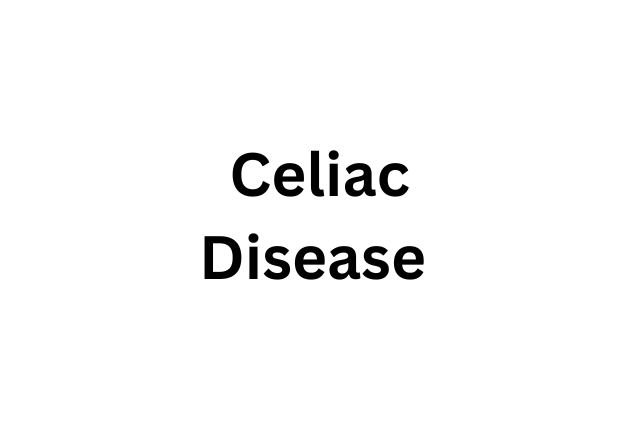What Is Celiac Disease?
Celiac disease (also called gluten-sensitive enteropathy or celiac sprue) is an autoimmune disorder that affects the digestive system in which the consumption of gluten results in damage to the lining of the small intestine.
Gluten is a type of protein that is found in some kinds of grains (e.g., barley, wheat, rye, and oats).
When the small intestine’s lining is damaged, it is less able to absorb essential nutrients, including iron, calcium, folate, and fats.
Causes of Celiac Disease
The immune system is the body’s defense against foreign invaders such as bacteria, fungi, viruses, and parasites. However, for those with celiac disease, the immune system reacts to gluten in consumed foods by forming antibodies, a type of protein produced to fight harmful foreign invaders.
These antibodies attack the lining of the intestine, causing inflammation and damage to villi, which are hair-like formations lining the small intestine that serve to absorb nutrients.
Damaged villi result in the reduction of nutrient absorption, and malabsorption.
Symptoms of Celiac Disease
Symptoms of celiac disease can vary. They may include:
- Problems with digestion, including pain, diarrhea, gas, bloating of the abdominal area, and pale stools
- Severe skin rash (dermatitis herpetiformis)
- Anemia (iron deficiency)
- Fatigue
- Headaches
- Muscle cramps
- Pain in joints and bones
- Seizures
- Weight loss
- Tingling feeling in the hands, feet, and/or legs (a result of damage to nerves and low calcium levels)
- Mouth ulcers
- Damaged teeth
- Acid reflux
- Heartburn
- In women, skipped menstrual periods
- In children, problems with growth and development
Complications of Celiac Disease
Celiac disease can lead to other conditions including:
- Malnutrition
- Osteoporosis (weak, brittle bones) due to lack of calcium and vitamin D absorption
- Lactose intolerance caused by villi damage
- In women, infertility and miscarriage due to lack of calcium and vitamin D absorption
- Birth defects due to lack of folic acid absorption during pregnancy
- Very rarely, cancer of the intestine (intestinal lymphoma and small bowel cancer)
Celiac disease can also be accompanied by other autoimmune conditions, which make the development of celiac disease more likely, including:
- Type 1 diabetes
- Rheumatoid arthritis
- Lupus
- Thyroid disease
- Sjögren’s syndrome, in which glands produce too little moisture
Diagnosis of Celiac Disease
To diagnose celiac disease, your doctor will perform a physical exam and a review of your medical history. A blood test may be performed to check for elevated levels of antibodies that occur in celiac disease.
Further tests may be done to check for deficiencies in nutrients, including iron levels in the blood. A stool sample can be used to check for the presence of fat, which occurs in celiac disease due to decreased fat absorption in the intestine.
A biopsy, in which a thin and hollow tube called an endoscope is inserted through the mouth into the small intestine, may be done to take a sample of the small intestine to check for damaged villi.
Treatment of Celiac Disease
Those with celiac disease cannot consume any foods with gluten. This includes oat, wheat, rye, and barley. When gluten is removed from the diet, the symptoms of the disease improve and eventually go away. Damaged villi can be healed in about six months.
The diet change must be permanent. Consumption of gluten will lead to the development of symptoms again.
If damage to the intestines was extensive before a diagnosis of celiac disease, a gluten-free diet may not be enough. Supplements for zinc, vitamin D, calcium, vitamin K, vitamin B-12, and/or folate can be taken in pill form, or an IV can be used.
A skin medication called dapsone can be used to treat dermatitis herpetiformis.
Considerations for a gluten-free diet
To manage a gluten-free diet, large changes to eating habits are required. This includes removing common foods such as cereals, bread, and pasta from the diet.
Labels for all packaged food must be checked carefully for ingredients containing gluten, and ingredients in dishes from restaurants must be inquired about before ordering.
A well-balanced diet for those with celiac disease can include special gluten-free breads and pastas, and foods made from gluten-free flours such as corn, soy, rice or potato flours. Fruits, vegetables, meats, and poultry are all gluten-free.
A dietitian can help formulate an appropriate eating plan.
READ MORE ABOUT CELIAC DISEASE …
Written By: Anna Zhou



